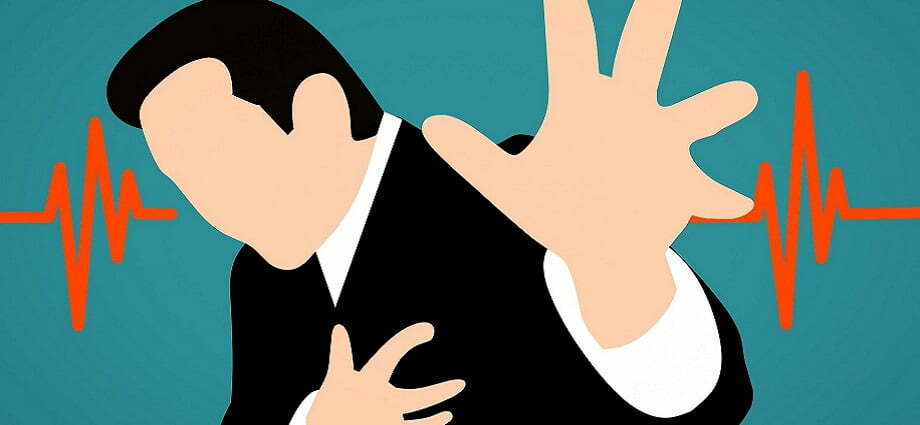An enlarged heart, also known as cardiomegaly, is a condition in which the heart becomes larger than its normal size. The heart is a muscular organ that pumps blood throughout the body, and in an enlarged heart, the heart muscle becomes thickened and stretched. This can lead to problems with the heart’s ability to function properly and can increase the risk of heart failure and other serious complications. Cardiomegaly can be caused by various factors, including high blood pressure, coronary artery disease, and valvular heart disease, and it is important to seek medical attention if you are experiencing symptoms of an enlarged heart.
Overview of Causes and Symptoms
There are several potential causes of an enlarged heart, including:
High Blood Pressure: High blood pressure, or hypertension, can cause the heart to work harder to pump blood throughout the body, leading to an enlarged heart.
Coronary Artery Disease: This is a condition in which the arteries that supply blood to the heart become narrowed or blocked, causing the heart to work harder to pump blood.
Valvular Heart Disease: This refers to problems with the valves in the heart that help regulate blood flow. If the valves are not functioning properly, it can cause the heart to work harder and become enlarged.
Other potential causes of an enlarged heart include viral infections, congenital heart defects, and certain medications.
Symptoms of an Enlarged Heart may Include:
Shortness of Breath: This can occur when the heart is not able to pump enough blood to meet the body’s oxygen needs.
Chest Pain: This can be a sign of coronary artery disease or other problems with the heart.
Fatigue: An enlarged heart may not be able to pump blood efficiently, causing fatigue and weakness.
Diagnosis of Enlarged Heart
To diagnose an enlarged heart, a healthcare provider will typically perform a physical examination and ask about your medical history and family history.
Electrocardiogram (ECG): This test measures the electrical activity of the heart and can help identify problems with the heart’s rhythm.
Echocardiogram: This test uses sound waves to create a detailed image of the heart. It can help determine the size and shape of the heart and evaluate how well the heart is functioning.
Chest X-Ray: A chest X-ray can show the size and shape of the heart and identify any abnormalities.
Cardiac catheterization: This procedure involves inserting a thin tube into a blood vessel in the arm or leg and threading it to the heart. It can help determine the blood flow to the heart and assess the condition of the coronary arteries.
Treatment of Enlarged Heart
Treatment for an enlarged heart will depend on the underlying cause of the condition. Options may include:
Lifestyle Changes: Making healthy lifestyle choices, such as eating a healthy diet, exercising regularly, and quitting smoking, can help reduce the risk of developing an enlarged heart and may also help improve symptoms.
Medications: Depending on the underlying cause of the enlarged heart, a healthcare provider may prescribe medications to help lower blood pressure, reduce cholesterol levels, or treat other conditions that may be contributing to the enlargement of the heart.
Surgery: In some cases, surgery may be necessary to repair or replace damaged valves or to bypass blocked coronary arteries.
How is an enlarged heart diagnosed?
An enlarged heart is typically diagnosed through a combination of a physical examination, medical history, and diagnostic tests. During a physical examination, a healthcare provider will listen to the heart with a stethoscope and may detect an abnormal sound called a gallop rhythm, which can be a sign of an enlarged heart. They may also check for swelling in the legs and ankles, as well as check the pulse and blood pressure.
In addition to a physical examination, a healthcare provider will typically ask about the person’s medical history and family history. They may ask about any symptoms the person is experiencing, as well as any risk factors for an enlarged heart, such as high blood pressure or a family history of heart disease.
Conclusion
In conclusion, an enlarged heart, also known as cardiomegaly, is a condition in which the heart becomes larger than its normal size. It can be caused by various factors such as high blood pressure, coronary artery disease, and valvular heart disease. Symptoms of an enlarged heart may include shortness of breath, chest pain, and fatigue. Diagnosis typically involves a physical examination, medical history, and diagnostic tests. Treatment options may include lifestyle changes, medications, and surgery, depending on the underlying cause of the condition. It is important to seek medical attention if you are experiencing symptoms of an enlarged heart, as it can be a serious condition that requires prompt treatment.

